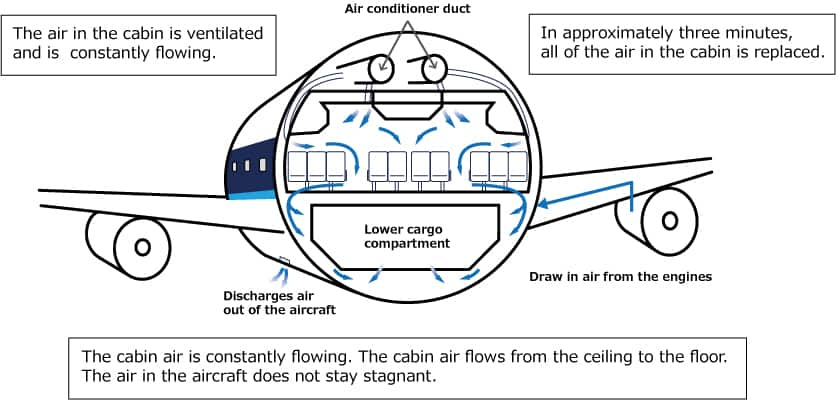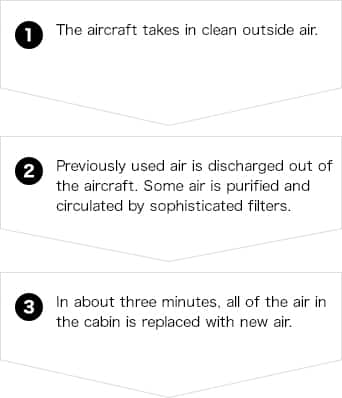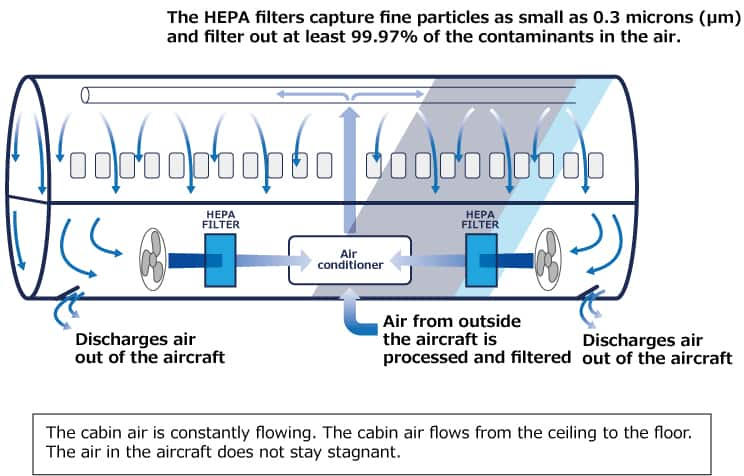How ANA maintains clean air circulation in its aircraft
All aircrafts operated by ANA will have clean air replaced in approximately three minutes:
- Clean air through adequate ventilation
The aircraft absorbs a large amount of clean air from the sky, which allows the cabin's entire air supply to be replaced in approximately three minutes. - All aircraft equipped with a high-performance filter*
The cabin air is filtered and circulated through a high-performance filter, ensuring high-quality, clean air.- The HEPA filters are commonly used in the air conditioning system of the operating rooms at hospitals.
- Constant air circulation
The cabin air is constantly flowing, from the ceiling to the floor. The air in the aircraft does not stay stagnant.
These measures help keep the air in the cabin clean. The International Air Transport Association (IATA) has stated that the risk of Coronavirus transmission is very low while passengers are in the cabin of an aircraft. The entire IATA release is available here .
.
Aircraft ventilation
All of the cabin's air is replaced with clean air in approximately three minutes.
Aircraft have the normal ventilation rates as listed in their design standards, and approximately 200 liters (1 drum) of air is ventilated per minute per passenger for each passenger.



High-performance filter
The cabin air is filtered and circulated through a high-efficiency particulate air(HEPA) filter, ensuring high-quality, clean air.

Each cabin is equipped with a circulation system that purifies air by passing it through a HEPA filter. All ANA aircraft are equipped with the HEPA filter. This is considered to be one of the most robust air filtration systems and is recommended by the CDC for its effectiveness at air purification.
The HEPA filter captures fine particles as small as 0.3 microns (μm) and filter out at least 99.97% of the contaminants in the air. It is a fairly active air cleaner and can be used as a countermeasure against airborne infectious diseases such as SARS and COVID-19. According to the manufacturer, this filter can also absorb coronavirus droplets in the air.
The diameter of the new coronavirus is reported as 0.1 microns (μm). Since it is a droplet infection, the droplet size would be large enough, approximately 0.5 microns, could be collected.
The HEPA filter has a collection capacity of 99.97%* of particles 0.3 microns and larger, making it a fairly active air cleaner.
- The N95, a medical mask, has a particle collection rate of 95% or more of 0.3 μm particles.